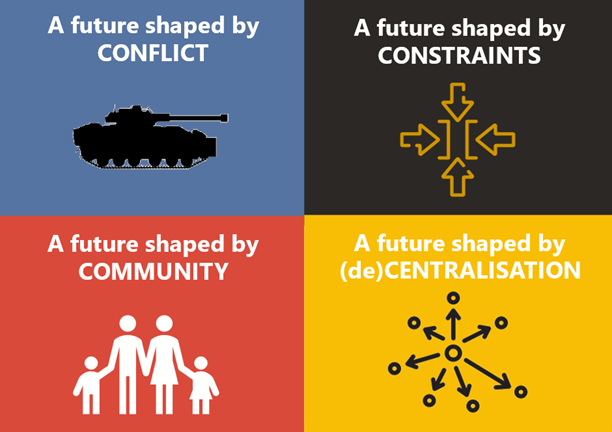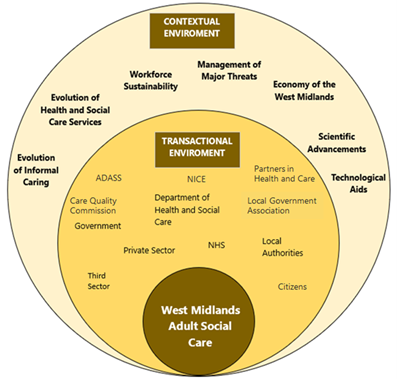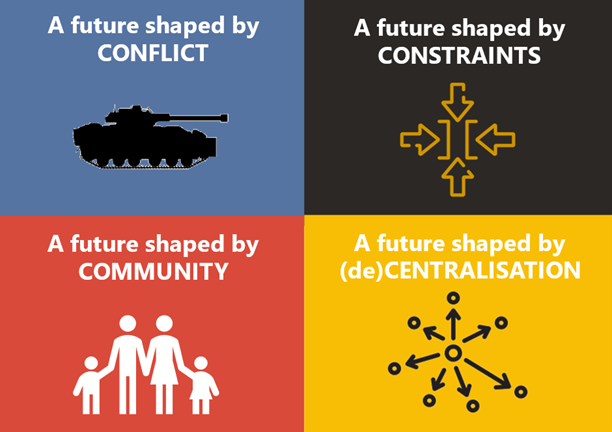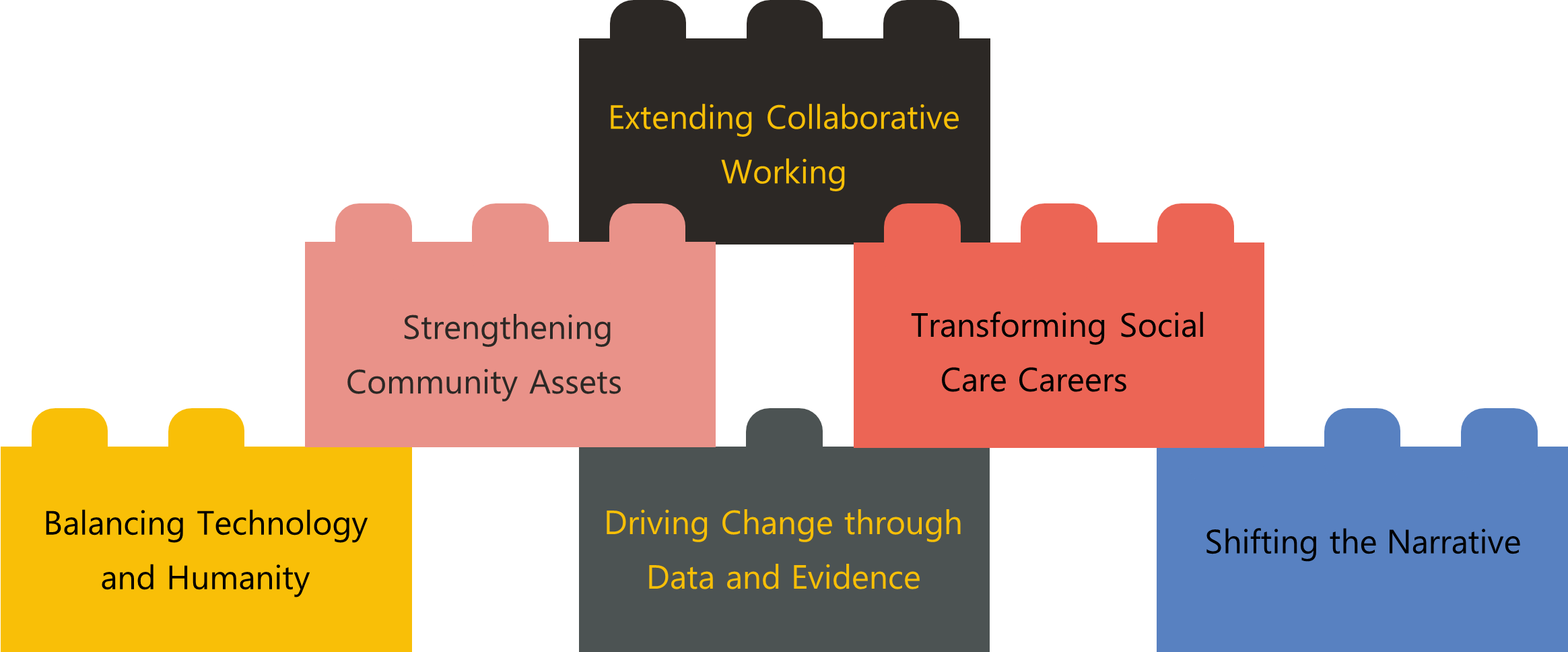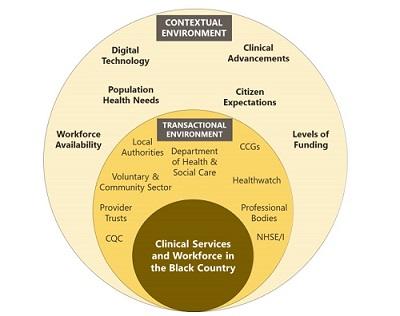The agenda of a social care leader is – by the very nature of the work – filled with pressing concerns about today. West Midlands’ social care leaders recognised this was getting in the way of building a more resilient system for the future. So, they asked the Strategy Unit to help them explore how the future environment might evolve and to identify where to focus their development efforts. We helped them to decide where to focus and to embrace their agency for action.
“The scenario work has been an antidote to mounting pressures in social care. By stepping back and taking a comprehensive view of the future, we are starting to proactively identify solutions, anticipate needs, and navigate complexities with resilience ensures high-quality care prevails.” Pete Fahy, Director of Adult Social Services, Coventry City Council and Vice Chair WM-ADASS Branch
Scenario-based thinking explores plausible ways that the future might evolve, and how making better decisions today could increase organisational agility, resilience and effectiveness. It works best when there is a clear focal question, and an agreed process for how and where the outputs will be used. WM-ADASS wanted to explore this question:
What are the critical building blocks for a resilient social care system in 2035?
The intention was that the scenarios developed would be useable both at regional level to inform an ongoing improvement programme, and at local level as a tool to engage wider partners and stakeholders.
There were three stages to the work:
In the first stage of this work, using a combination of exploratory questions, rating scales, and subsequent research, we undertook an analysis of key forces likely to affect Adult Social Care services in the West Midlands 2023-2035.
The second stage was a half-day workshop with WM-ADASS and invited associates. Through facilitated group discussions, four diverse scenarios began to emerge.
“Thinking about the future is vital for adult social care services, breaking free from tradition. Unusual, yet immensely valuable, it has challenged our thinking and fostered a forward-looking mindset. Embracing innovation, we anticipate and navigate future uncertainties, boosting resilience and effectiveness.“ Richard Harling, Chair of WM-ADASS Branch and Director of Adult Services & Health, Staffordshire Council
The final stage was another half-day workshop focused on supporting participants, including people with lived experience, to explore what those diverse and plausible futures might mean for adult social care. Illustrated below as a collection of building blocks, are the six emerging themes developed from the exploration of group insights and agreed actions. These were actions that could be taken now so that Adult Social Care services are best placed to thrive, whatever future transpires. These are captured in our final report – which itself is a tool to encourage further conversations and action at national and local level.
Diagram of emerging themes
To support the ongoing exploration of scenarios, we developed a toolkit to enable local partners to generate further shared learning, and to inform effective collaborative action.
"The scenario work is empowering us to shape the future of adult social care. By exploring various scenarios, we can embrace our agency, move beyond reactivity, and become active drivers of positive change. Informed decisions, adaptive strategies, and proactive solutions pave the way to a responsive, sustainable, and person-centered future.“Jenny Wood, Director ASC & Support, Solihull Council & Vice-Chair WM-ADASS Branch
CC BY-NC-ND 4.0

This work is licensed under a Creative Commons Attribution-NonCommercial-NoDerivatives 4.0 International License.
